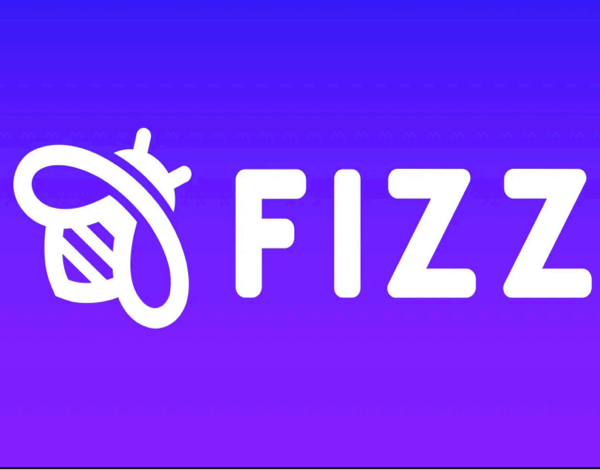By Grégoire Winston ’26, Editor-In-Chief

Fizz has recently gained traction at Hamilton as an inter-
active forum for student discussion and entertainment. Photo courtesy of the Stanford Daily.
At the start of 2024, Hamilton College became the new home for Fizz. The pseudonymous social media smartphone application allows for college students to create and interact with message threads across a 5-mile radius. Hamilton students can come together to discuss topics of interest, from internet memes to campus trends. Despite the app’s recent emergence at Hamilton, its presence at other college campuses nationwide is widespread: Pace University, Vanderbilt University, and Stanford University have all experienced Fizz on their respective campuses, among others. At its core, Fizz is intended to be used as a platform meant for fostering “inclusivity and authenticity to students across the nation,” as per its official website.
In order to attract new users, Fizz advertises opportunities to collaborate and showcase their platform in exchange for financial compensation. Student ambassadors are contacted through Linkedin. As Fizz ambassadors, students are tasked with recruiting 10 peers to pass out Fizz merch and give away donuts once a Hamilton student has signed up on the app. “A few of my recruits were skeptical, but some people were willing to go along with it. They got paid $50 with a $25 dollar bonus once a total of 600 students had signed up at Hamilton,” Alexia Sayers ’27 said. “As someone who wants to work in media relations and social media marketing later on, I was willing to give it a shot. I have a friend at Pomona who would tell me how often she would use Fizz, so I understood how
credible the app truly was.”
In the summer of 2021, Fizz was launched by two Stanford students, although the team behind the social media application has “since expanded to a team of individuals (primarily college-aged) dedicated to building authentic online communities,” as stated by the Fizz website. Behind Fizz’s making was an intention for an app that could “facilitate authentic conversations while being properly moderated by other students in the community,” says the website. Today, Fizz claims it has cemented its place on Stanford’s campus, with over 80% of undergraduate students adopting the app as their “one-stop shop for campus life, including memes, events, meeting classmates, commerce, and just a place to speak their mind.”
While on the app, users can interact with posts by upvoting
or downvoting threads. In an effort to protect the platform from potential forms of hate speech, student moderators are hired. As part of their responsibilities, moderators are required to process flagged posts and determine whether they are worthy of being deleted. Fizz claims their moderators are “trained to be objective” and respect the application’s community guidelines, as well as prohibiting any single moderator from having sole control over a post’s removal. “Posts that get flagged are sent to the moderators. The first two individuals of 12 campus moderators who respond get a say as to whether the post gets taken down or not. The mod-
erating process is run by students, and flagged posts vary widely. I get paid $500 a month,” stated an anonymous Hamilton Fizz moderator.
Despite its steady growth on campus, some students were displeased with the arrival of a new social networking platform at Hamilton. “I hate the app. I don’t think it is a useful app. We already have an honest app, we’ve seen it doesn’t work on college campuses and I think the way they are inflating and promoting likes is embarrassing and cringe. The idea behind an honest platform doesn’t sit well with me. If you want to say something, put it on your main account,” Eliana Mannes ’26 said.
In the end, Fizz has staked a definite presence on campus. In a similar fashion to related networking platforms, such as Jodel and YikYak, Fizz’s ability to serve as a forum for campus discussion is sure to draw users in.